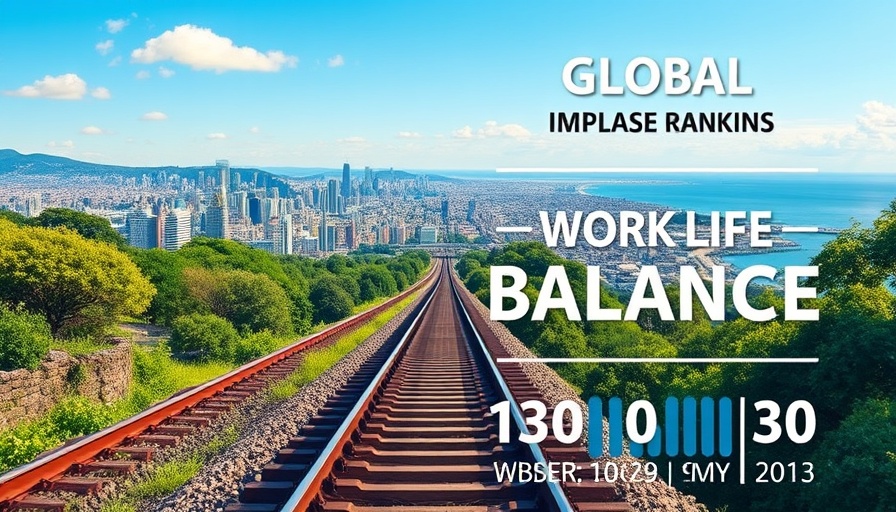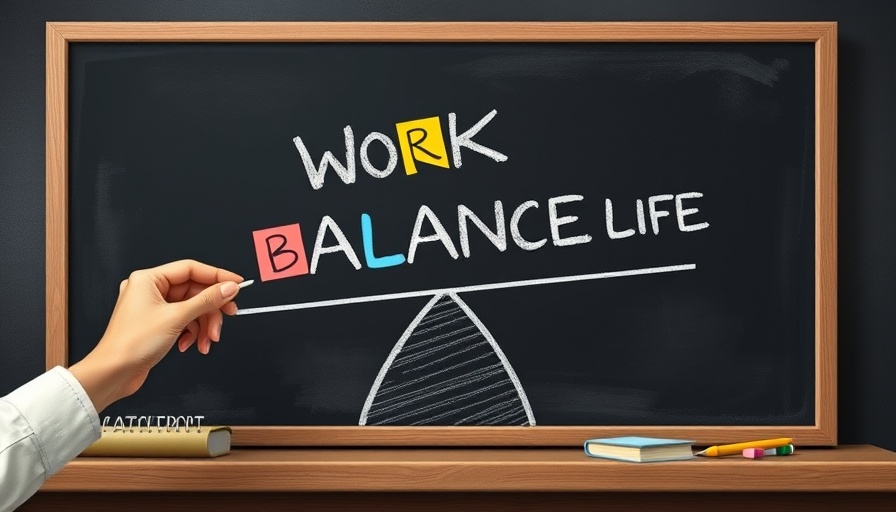
South Korea's Improving Work-Life Balance: A Closer Look
In a recent evaluation by Remote, South Korea has climbed to the 31st spot out of 60 affluent nations in the Global Life-Work Balance Index 2025. This marks a notable five-place leap from the previous year, reflecting some slow but promising advancements in the nation's approach to work-life balance.
What Factors Contribute to the Ranking?
The Global Life-Work Balance Index takes into account various factors such as annual leave, sick pay, maternity leave, minimum wage, and healthcare systems. Korea's improved ranking showcases progress, particularly in areas like minimum wage and average weekly working hours, which have decreased to an average of 37.9 hours. This change provides employees with a healthier framework to balance work and personal life.
Gains and Shortfalls in Key Areas
While there are positive changes, Korea's performance is not without its shortcomings. The country's scores in sick leave, paid maternity leave, and general workplace safety continue to drag down its overall standing. Addressing these gaps is essential for Korea to enhance its work-life balance further.
Comparative Global Perspectives
When comparing international scores, European nations led the index, with New Zealand securing the top position, followed closely by Ireland, Belgium, Germany, Norway, and Denmark. Among its Asian counterparts, Japan ranked 29th, while China trailed significantly at 52nd. These variants highlight a cultural difference in how countries structure work-life balance to suit their societal needs.
The Importance of a Balanced Approach
Achieving a healthy work-life balance is pivotal not just for individual well-being but for enhancing productivity across the board. Employees who maintain a balance between work and leisure tend to exhibit higher satisfaction and better mental health. This index serves as a wake-up call for those in power, signaling a pressing need for reforms to improve employee rights and benefits.
Future Predictions and Opportunities for Improvement
Looking ahead, there is meaningful potential for South Korea to climb even higher in the rankings. With increased awareness and advocacy for worker rights, further improvements in paid leave and safety standards could enhance its standing. Employers can play a crucial role by fostering a corporate culture that values employee wellness and satisfaction.
Your Role in Improving Work-Life Balance
As a professional, whether you’re in a leadership position or a team member, you have the power to influence workplace dynamics positively. Consider advocating for policies that promote better working conditions. Whether that's suggesting flexible schedules or emphasizing the importance of mental health days, every small action counts.
Understanding your country's position in the Global Life-Work Balance Index is more than just numbers; it reflects cultural foundations and the historical context of labor rights. Let's use this moment to inspire change and advocate for a better working environment that prioritizes both productivity and well-being.
 Add Row
Add Row  Add
Add 




 Add Row
Add Row  Add
Add 

Write A Comment